What is Marketing, Really?
Welcome to the Market Inside Out Podcast with Suzanne Longstreet, Emma O’Brien, and Michelle Tresemer. It’s time to defuse the marketing minefield for entrepreneurs.
Today our mavens of marketing take a holistic dive into all things that help you market your service or product. If you’re an entrepreneur or solopreneur feeling left behind because you’re not a TikTok or Instagram sensation, Suzanne, Emma, and Michelle will help you recognize that many of your best business practices are really marketing. Sharing common-sense expertise on mindset, brand messaging, and digital strategy and tactics, the three tackle: what marketing is not, how product, price, and place are your foundations for promotion, why people make marketing harder than it has to be, and the ‘clean your car’ perspective of marketing. As always, the trio’s key advice is if you focus on what your customers want and expect, you’ll get there.
What marketing is not
People find marketing difficult for a number of reasons. But their difficulties often start with a limited notion of what marketing is, or a state of mind that leads them to conclude that marketing is a particular channel or strategy or something “they should be doing.” For starters, marketing is not just writing a blog, getting in on Instagram and TikTok, or responding to pressures (self-imposed or external) to “do social media.” It’s not a replacement for the hard work of improving your product, process, or program.
“It’s not just writing a blog”
Emma O’Brien [00:58] shares her blog lessons.“I would pain away working on these blog posts. They would take forever putting them up, and it’d be really frustrating, and nothing would ever come of it. Clients wouldn’t come because of these blogs on my website, and I got really frustrated.”
Marketing is not “getting in on” Instagram or TikTok
Emma [02:18] hears entrepreneurs panic, thinking they need to get in on Instagram or TikTok. “I had like a 55-year-old CEO friend of mine tell me he was going to get on TikTok. I’m like, ‘What are you talking about? You have a B2B.’”
Your marketing shouldn’t be a response to pressures to ‘do social media.’
Michelle [02:52] seconds Emma’s point. “When people say, ‘I need to do social media. I need to do a blog,’ I don’t know what that means…. It’s like, well, what do you mean you need to do that? Maybe you need to—I don’t know—talk to your customers? Maybe improve your product?”
Marketing is not a replacement for the hard work of improving your product, process, or program.
Michelle [03:22] adds, “So I’m going to give you a little hint, you guys. Social media is not going to make your product suck less. Think about that. I’m not kidding. People try to exchange marketing–what they think marketing is–in place of improving their process or their program or their product.”
“Social media is not going to make your product suck less”
-Michelle Tresemer
Don’t get your promotion horse before product, price, and place
Michelle [03:45] “When people call me, a lot of times, they’re trying to go straight to the tactics of what they think marketing is. And we have to roll it back and say, ‘Whoa, whoa, marketing big picture!’….It’s the four Ps, right? Product, price, place, and promotion. Promotion is last for a reason.”
You cannot promote your product until…
- your product is solid.
- you know your price.
- You know how you’re going to deliver it and where you’re going to deliver it, which is place.
Michelle [04:33]: “If they considered the first three Ps and they had a killer product, it was priced correctly, that’s literally half of your marketing pie done for you, already, which makes promoting it so much easier and painless.”
Stories people tell themselves that make marketing harder than it needs to be.
Marketing is a big undertaking and hassle.
This is a common perspective Emma has encountered in talking with other entrepreneurs or solopreneurs who are at the early stages of building their businesses. Marketing is something that must be learned, it’s hard, and “marketing seems like a big undertaking and hassle.”
“I don’t really have to market”
Emma [05:30]: “I was speaking to one woman…and she’s like, ‘Oh yeah, I don’t really do marketing. I mean, I still get clients. So, I don’t really have to market.’”
Emma analyzes this comment:
“You do have to market.
“[The woman] clearly is marketing, because she’s getting clients. But she’s not counting whatever it is that she’s doing as marketing.
“The fact is, if you are kind of getting clients, you are doing some form of marketing. Your product is out there. It’s in the right place. People are seeing you.
“There are all these things that are marketing, and a lot of them are little things that you’re doing anyway. If you did them with some intention, you could get some really good returns and feel good that you are marketing your business.”
‘Clean your car’ marketing: it’s how you show up
Michelle [06:52] applies a great tip she got from a post-college job counselor: clean your car, which is actually marketing advice. In a job interview, you’re marketing yourself, which means people are looking at how you operate in all aspects.
Everything You do is part of a big perception package
Michelle [07:20] “And as someone who now hires, I do look, is their car clean? Is it full of trash? Because I don’t want someone managing my projects if they cannot manage the state of the interior of their car. Okay. That is marketing, how your car looks. It doesn’t have to be brand new, but it needs to be well taken care of, organized….All of that gives the whole package of what you’re offering.”
Suzanne [07:51]: “I love that because how you do anything is how you do everything. So if you’re looking at somebody, and if they can’t keep their car clean or running, and they can’t arrive on time, and they’re constantly at the last minute, then you know that that’s a pretty good indicator of how they’re going to be in everything.”
Your behaviors are marketing
Suzanne: [08:26] “It’s a basic tenant of neurolinguistics programming. People talk higher than they behave, and so you must calibrate on people’s behavior.” And you can bet that your clients and customers are doing just that.
Michelle [09:21] takes it back to marketing. “So if we talk about marketing, the behavior gets really granular, such as having policies in place, like my team does, on email return time. Little things. What does your signature look like? How quickly are you returning that email? Are you proofing it? It’s all those little tiny touch points, and you think you’re not doing it. Like whoever said they’re not doing marketing; they absolutely are.”
Marketing has to match what’s important to your brand
Suzanne [10:08]: “There are certain things in my brand that are important…because I want to be the person that people trust….So I need to be consistent and reliable and trustworthy and approachable in my marketing.”
Your brand needs to match what customers want and expect
Emma [11:11]: “…your perception of your brand has to really jive with what your customers want and expect. Otherwise, you’re going to freak them out, they’re not going to trust you.”
Michelle: [11:24]: “…if all of your digital materials looked perfect and spot on, and you got a whole bunch of get-acquainted calls, but behind you during the Zoom it was a disaster like dumpster fire, you’re not going to close those. It’s a mismatch. So that is marketing.”
Emma [12:33]: “…you’re here to resonate with a certain audience, to speak their language…. And bring them in…..There’s so many people, and we all just want to connect with the brand that feels right for us and our personality.”
The 4 Ps—product, price, place, and promotion
Product (or Service) Mindset. Is your heart and soul in it?
Suzanne [12:59]: “…you need to know at your core what you’re best at. So you need to make sure that you’ve connected to your purpose and what your core genius is—that you’re getting that out into the world. Not something that somebody else told you that you need to do. So really go inside and connect and figure out what that is.”
Price. How do you set a value on what you do or sell?
Suzanne [13:33]: “…we’ve all had conversations around what do you think is the best price? We’ve gone out to ideal clients and said, “What would you pay for this?”
Emma: [13:48]: “So from my perspective, price is also a piece of positioning….if you want to reach a certain audience, it must be priced for their expectations and what they’re willing to pay….it’s about connecting with the expectations of your customers, something they see the value in and are willing to pay. So price is actually….positioning what kind of product you are, or service.”
Michelle [14:51]: “I use [price] as a differentiator. I heard some other podcasts that said, ‘Someone is going to be the most expensive. Why not you?’
“So now, a lot of times I open with ‘I can guarantee my proposal is going to be higher than everyone else’s, and it’s higher for a reason. It’s up to you if you want to find out that reason.’ And I have never lost a bid because of that.
“I will talk to [potential customers] on the phone when I’m doing my get-acquainted, because they’ll start asking about pricing, and I’ll just straight up say, ‘I’m going to be the most expensive.’ And they love that I’m upfront about it, because they don’t feel like they’re going to get nickel and dimed…..It’s that honesty, right? That’s part of the brand.”
Suzanne [15:49]: “…my pricing is all about what they’re willing to invest in themselves for their success. And quite frankly, I’m looking for people who are willing to invest in themselves, because the more that they’re willing to invest in themselves, the more that they will take action for their success. And the more that they’ll show up, and the better results that they have. I’ve seen it….the people who got it for free or added severe discount, did not get the same results for themselves that the people who invested. So pricing is really important.”
Place—where you deliver your product or service.
Michelle gives examples of place: brick and mortar, online, a Facebook group where you deliver part of your product, email can even be place if you deliver your product via email, Zoom sessions. Bottom line, place affects how you will market.
Promotion. Think Future-oriented Marketing Solutions
If your product, price, or place are in flux, solve those issues first. For example, if you’re a traditional brick and mortar retailer trying to shift to online, you have to solve:
- how your customers will get your product or service? Michelle
- how will you bring them along? Michelle
- the trappings of your old brick-and-mortar mindset. Some going through this transformation are seeing opportunity, while others are lamenting that they can’t open their doors, so they can’t make money. Suzanne
The truth is, marketing is always in flux. It’s ever changing, so you’ve got to read the data and look ahead. As Suzanne [18:34] says, you’ve got to be “future oriented.”
Michelle [18:02] “If marketing departments are doing their job, they should be thinking 5, 10 years, 15 years down the line. They should be the first to raise their hands and say, ‘Hey CEO, just saying, we now have 1% of sales online. Hey, we’re starting to see movement over here. We should invest more in our online technologies and the way we’re engaging with our customers online.’ If they’re not raising that flag first and years in advance, they’re not doing their job.”
- Don’t overlook traditional ways to promote your company that will reach your target, ideal customer. Michelle [19:15] “There’s email, direct mail, there are billboards, traditional advertising, TV commercials, radio commercials. And now, radio is not just radio; it’s Pandora and Spotify. So online radio stations.”
- Digital promotion: Michelle [19:20] “It’s emails, newsletters, online ads, social media, digital PR. PR has moved very digital now, so it’s a different beast.”
- All are promotion.
Go to where your clients or customers are
The good news is you don’t have to do them all. Go to where your clients or customers are:
Budget Prioritization
Michelle [20:04] “I always drill down whenever a CEO or VP of marketing says, ‘Hey, we need to go do this.’ It’s like, ‘Great. You have limited time and budget. Do you want me to shut off this thing over here that is bringing you millions of dollars a month? For you to play on TikTok?’ Because you’re going to have to choose, like there’s a limited number of levers you can pull. You can’t pull them all unless you have unlimited budget and a huge staff. Even big enterprise companies have limited digital marketing staff. So you really have to be smart about which tools you’re using and when.”
Suzanne [20:38] “Years ago, I heard the term bullseye market…it’s where you spend your limited time. Everybody has a budget. Even as you just mentioned, Michelle, the big companies. Everybody has a budget, and we need to spend our limited time, resources, and money in a bullseye target. And it doesn’t mean that you’re never going to attract other people, but you need to focus on that one area, that bullseye target.”
Michelle [21:03] “I like to give clients parameters. I say, ‘You’re going to spend 80% of your time and money on the stuff that’s working. You get 20% of play money.’ It’s just like financial budgeting. You have to have a fun fund-some money set aside…. You can spend it on whatever the hell you want. So great, we’re going to take 20%, and we’re going to play with it and we’re going to test. And we’re going to do your little pet project, we’re going to play with TikTok for 90 days. Doesn’t work? Great. We’re going to shut it off. We didn’t lose anything. We budgeted for this test.”
Today’s Key Takeaways and Final Words of Advice
Key Takeaways
- Marketing isn’t the latest digital bells and whistles like Instagram and TikTok. It’s not just blog writing. Don’t ‘do’ marketing because you’re responding to pressure to do social media. Finally, marketing isn’t a replacement for the hard work of improving your product, your process, or your program. It won’t make your product suck less.
- Don’t try to promote your product until your product is solid, you know your price, and you know exactly how and where you’re going to deliver it.
- The stories you tell yourself about marketing can hamper your recognition of what is working.
- If you think you’ve got enough customers and don’t need to market, stop and figure out all the things you are doing that draw customers to you. Do more of those things with focus and intention—that’s marketing. Can’t hurt, right?
- Think about the ‘Clean Your Car’ advice: Show up, be on time, have policies in place that keep your behaviors and those of your team in line with your brand.
- Your brand and behaviors need to match what your customers expect and need from your product or service.
- Check your product or service mindset to ensure you’re putting out there into the world what you’re an expert at and passionate about.
- When setting a price for your product or service, remember, price is also about positioning. That price has to match your target audience: it must be priced for their expectations and what they’re willing to pay. Price may also be used as a differentiator—if you charge more, you’re worth more—prove it.
- If your product, price, or place are in flux, solve those issues first before you go onto promotion.
- Marketing is always in flux, so you have to be future oriented in choosing today’s and planning for tomorrow’s marketing solutions.
- Always go to where your customers are.
- Prioritize your marketing budget. If you’re dying to try something new (like TikTok), put a budget line to the side to run some tests. Stay bulls-eye focused on your target clients with the rest of your marketing budget.
Final words from your expert defusers:
Emma [22:00] “Know that marketing is more than just the one thing. It’s all the things you do to get the word out about your business. What are the things that have actually resulted in business, clients? That is marketing, and focus on that, and don’t worry about all the other stuff. So for me, my blogs weren’t really working. And when I started to learn that speaking would work every time I would do a workshop, I would get clients, I’m like, ‘Oh, this works and hey, this is marketing too.’ So I would focus on that. So that would be my advice.”
Michelle [22:28] “…start with those foundational elements and nail those. Like before I would ever do promotion, make sure your proposal template’s nice. Are you emailing back? Start with the basics and get that system working. Get your 80% functional, and then start adding on more. Nail it, and move to the next thing.”
Suzanne [22:48] “…from a mindset perspective, I would say, show up, put your face out there, start talking to people, let them know what you do, because what you do has value and surface in the world. If you’ve decided that you want to be an entrepreneur or you want to be in business, or you want to offer your service or a product out in the world, start telling people.”

Michelle Tresemer
Categories
- Analytics and Measurement
- Brand Messaging
- Competitor Analysis
- Content Marketing
- Digital Marketing Strategy
- Digital PR & Events
- Marketing Budgets
- Marketing KPIs
- Marketing News
- Marketing Rock Samples
- Marketing Staffing & Vendors
- Marketing Strategy
- Marketing Tech Stack
- Podcast
- Product Marketing
- Sales Marketing Alignment
- SEO
- Social Media
- Strategic Marketing Partnerships
- Target Markets
- Uncategorized
- Vision & Purpose
- Webmaster








